The Charm of B’Ellana Duquesne
The genderfluid star of Mosaic Theater Company's "Charm" takes on a powerful role she was born to play.

“I’ve always tried to stay close to theater,” says B’Ellana Duquesne. “I like the fact that you can get close to a facet of your personality and just let it express. There are certain traits within you that are just so liberating whenever they come out. I guess from a trans person, it’s even more a cherished experience, allowing something that has been kept under wraps to just emerge. For me, it is the essence of the trans experience.”
Duquesne, who identifies as genderfluid (she was born and sometimes presents as Jack Eng), has always been drawn to the theater. Her interest took hold in college, when she switched from studying pharmacy to majoring in speech, communications and theater at Duquesne University.
“I was attracted to the arts not only from an artistic standpoint, but socially,” she says. “I said, ‘Oh, gosh, the theater people are the cool people. Those are the people I want to be with.'”
Despite a love for the theater, Duquesne’s acting career as Jack Eng took short shrift. She married twice, raising two sons with her second wife, and largely suppressed B’Ellana, the more dramatic, feminine side of her personality. What little contact Duquesne maintained with the theater was during a stint as a high school teacher overseeing the drama club and coaching the improv team.
It was only after retiring from a later job as a healthcare lobbyist that Duquesne, who maintains residences in both Annapolis, Maryland, and Wilmington, North Carolina, reignited her passion for performing by landing a role in The T Party at Silver Spring’s Forum Theatre. She then auditioned for the role of Mama Darleena Andrews — “Mama Darlin” — in Mosaic Theater Company‘s production of Charm, but was passed over for the role. Local actor KenYatta Rogers got the part instead.
Based on the true life story of Chicago transgender icon Gloria Allen, Charm chronicles the efforts of Mama Darlin, a 67-year-old transgender woman, to teach etiquette to a group of young charges at a center for Chicago’s homeless and LGBT-identifying youth. After researching the role, Rogers approached director Natsu Onoda Power and Mosaic to discuss whether it might be better to have a transgender actress play the part.

Meanwhile, Mosaic received feedback from members of the LGBT community about the importance of having transgender roles portrayed by transgender actors. It’s an issue that’s gained attention as the transgender community fights for representation, particularly after Transparent star Jeffrey Tambor’s 2016 acceptance speech at the 2016 Emmys. “I would not be unhappy were I the last cisgender male to play a female transgender on television,” Tambor said.
Heeding Rogers’ advice, the play’s director, Onoda Power, offered the role to Duquesne.
“Plays often come with political imperatives,” Ari Roth, Mosaic’s founding artistic director, wrote in a statement announcing the casting change. “We’ve come to understand that, at this moment, the politics of representation and empowerment of trans actors on our stages is of supreme importance. Empowering a trans actor to drive the show is a way of undergirding the message of empowerment in this play.”
While Duquesne embraces her status as a member of the trans community, she also understands that some may be uncomfortable with her identification as genderfluid, rather than exclusively as a transgender female.
“It’s controversial,” the 64-year-old acknowledges. “Kate Bornstein — I took an acting seminar with her once — had me question the idea of cis privilege. Was it really me wanting to express a male side of myself, or somebody not willing to give up some of the privileges of cisgender treatment by society? That’s a question you [as a trans person] have to deal with on a personal basis. But I think I’ve come to terms with how I present.
“I’ll quote Wanda Sykes on this one: ‘The older I get, the faster the words “I don’t give a fuck” come out of my mouth,’ Duquesne says. “There comes a point where you just don’t care what other people think.”
And that is part of the charm of B’Ellana Duquesne.

METRO WEEKLY: Let’s start with your childhood. Where were you raised?
B’ELLANA DUQUESNE: I was born in Brooklyn, New York, with the name of John Eng. I split my time between New York and Wilmington, North Carolina, because my grandmother lived there and my parents felt that New York maybe wasn’t the best place for a kid to hang around during the summer. I was educated in parochial Catholic schools. I went to a Jesuit military high school. My childhood was a fairly content and happy one.
MW: What was it like attending a Jesuit military high school?
DUQUESNE: Intense, competitive. Awkward during the late ’60s, when the counterculture revolution was going on. It was also an interesting dichotomy: Jesuit beliefs and questioning everything, and the military response, not questioning things.
MW: Did you drill, like ROTC?
DUQUESNE: Yes, actually. Believe it or not, as a senior, I graduated as a battalion staff. I was the band drum major. It was, again, a military school in the middle of 16th Street in Manhattan, in the midst of the counterculture. One day, you’re marching in what we call the quadrangle — the school was built on a city block, and the middle was open so they could do drilling and stuff — and the next minute, you’re down the block from the Fillmore East and the Electric Circus [nightclub]. It was an interesting time to be in New York.
I did not like getting my hair cut short, though. Especially when everybody was growing long hair. [Laughs.]
MW: And then you attended Duquesne University. What was that like?
DUQUESNE: I loved every minute of it. In fact, I probably loved it a lot more. If I were to do my college education over again, I’d probably have a little less fun and a little bit more time to study.
Pittsburgh is a unique city for a college kid, because not only is Duquesne there, but the University of Pittsburgh is there, Carlow College is there, Carnegie Mellon University is there. And yet, in terms of size, it’s not a very big place. Commuters, like many industrial towns, went home to the suburbs and left the city to the kids. And it was the ’70s. And yes, I did let my hair grow long.

MW: What did you do after you left college?
DUQUESNE: I got a job in radio at WVAB in Virginia Beach. This was in 1975, maybe ’76. I had a late night shift from midnight to 6 a.m. In 1976, I got offered a position in Bermuda at the Hamilton Forty Thieves Club, which had a live broadcast radio program. It also had live entertainment. I doubled up as an emcee for some of the events that went on at the Bermuda resort, Forty Thieves Club Complex.
I did that for a couple of years, then really did no other theater for the next 30 years or so. I was looking for a way to get out of Bermuda, to be honest with you. The island was 22 miles long, two miles wide. Not good for a New York City kid. I got involved with Lincoln Financial, and did health insurance and pension plan underwriting for the next 30 years.
MW: How do you identify within the LGBT spectrum?
DUQUESNE: I currently identify as genderfluid. I present both ways, although depending on the circumstance and situation, I tend to be more one way or the other. I split my time between D.C. and North Carolina. I would say, in D.C., maybe not exclusively, but almost always in female form, unless there’s a particular reason — a job interview or if a friend of my son’s asked me to be a character witness in a trial. I’m making up absurd situations, but you see what I’m saying. I allow the situation to drive how I present. But most of the morning, I wake up, and if I’m feeling girl, that’s how I present.

MW: And it’s the opposite in North Carolina?
DUQUESNE: Quite the opposite. First, there are fewer situations that call for being female. Second, there is a sense of safety and acceptance that I just find wonderful in D.C. that I don’t find in North Carolina. So you’ve got a combination of factors.
I have gotten divorced because of my gender fluid nature. I’ve had years and years of therapy, both in individual and group situations as well as a myriad of support groups. There was a period of time when I tried full-time — and in fact, way, way long ago, the protocol for transitioning was to live a year in the other gender just to make sure before any drugs or surgery would be permitted — and I never made it through that year.
MW: How old were you when you began telling people you were gender fluid?
DUQUESNE: Publicly telling people? Oh, my gosh, six years ago, seven years ago. We’ve got 40 years of closeted existence before that. I probably dressed up in female clothes for the first time when I was age five. I became fairly consistent about it in terms of exploration of those feelings, the need to present, around college. And if I had a cultural identity [in college], it was probably with the David Bowie/Alice Cooper, makeup/rock glam-type of presentation.
MW: Who was the first person you told ever about your gender fluidity?
DUQUESNE: That would be wife number one. I first got married when I went to Bermuda. As a matter of fact, that’s why I got married, so that she would have a visa. I got married to a college girl who did not know about my female need to express myself. It was something that became an issue in the marriage, years later, whenever I said, “You know what? There’s a side of me that’s just got to come out.” Her words to me were, “I didn’t bargain for this.” That marriage ended after nine years. It was either her, or giving up who I was.
MW: And that’s when you tried to live a full year as a female?
DUQUESNE: Yes. And I found that being a girl all the time wasn’t me, either. I was in Atlanta at a conference for trans women. I remember that morning I hadn’t done any exercise. I’d been gaining weight so I put on some shorts and some sneakers and starting walking down Atlanta. My stride got a little bit longer, my stance got a little bit wider. My body just felt so good not to be walking in high heels in these tiny little steps keeping your hips in one position or the other. I just relaxed. I just had a real guy moment. I said, “Holy shit.”
I don’t know how to explain it. It’s not about the things you do. I can go watch football and scream at a television with all the girls. It’s not that it’s guy things, but there is this internal feeling of “I just need to be this way.” It works both ways. I can go to the ballet in guy clothes. One of the nicest things I found in therapy was sometimes there’s not an answer that any clinician can give you. There’s no insight that you can find in a support group or a therapy group. The one thing you can learn to do is just accept it, and not care what others think. I’ve accepted who I am. What other people think is none of my business. That’s a quote, I stole that line from RuPaul. But it’s so true.

MW: What about your second wife? How was she with your situation?
DUQUESNE: Wife number two was tolerant. But I wouldn’t say understanding. [She got pregnant] and the next 13 years are all about raising kids and nothing to do with me or my gender identity. You don’t have time between going to work and getting the kids ready.
MW: So B’Ellana went dormant while you were raising your sons.
DUQUESNE: I wouldn’t say totally dormant. One of the things I found was my job required a lot of travel. When I packed a bag for a business trip, I always packed a bag for her. Sometimes I never opened the suitcase, but I was always prepared.
MW: Is there a particularly memorable instance where B’Ellana emerged while on a business trip?
DUQUESNE: To be honest with you, so many of those nights were spent alone in a hotel room. Maybe making a phone call or two to somebody who knew about my other side.
I would get dressed up and then wait for her to come. That’s the interesting thing about my life now: There’s no more waiting for either one of us to come. You just sat there and all of a sudden you could just feel this personality rise. Sometimes, I would sit there, maybe order room service, have some dinner, watch television, call a friend. Or if I was in a city like San Francisco, I’d go to Hamburger Mary’s. Or in Philadelphia, the very first time I went to a bar, when I met other girls. I wasn’t alone, there were others like me.
You make friends, you exchange phone numbers. This was before email even. Just basically say, the next time I’m in town, we’ll go out. And, do you know about this surgeon? Do you know about that person? “No, you don’t have to get surgery, I’ve been on hormones for years, but I never had SRS.” All of those go on as you meet people. It evolved into a counterculture, in and of itself.

MW: Were there other times when you were able to present as B’Ellana during your marriage?
DUQUESNE: Oh, honey, that’s why they invented Halloween! Or, as my kids say, “Dad, are you ever going to wear a guy’s costume for Halloween?”
There were events over the years — and we’re talking a significant amount of time, a dozen years or more. Those contacts in San Francisco or Chicago or New York or wherever I did my traveling led me to local contacts. In fact, I attended some trans support groups right here in the area. Many of those groups provided changing areas before a meeting so that you could present as you felt while you were in the meeting. Those meetings always ended up with a social event afterwards. Maybe I’d do that once, twice, three times a month.
I will also tell you that was an issue in the second marriage as well. While not nearly as adverse in the first marriage, it was something that was tolerated, not encouraged. I’d get that look whenever I would say, “I’m going off to a support group meeting.” I would say that it was not until the kids were out of the house that I really felt the freedom to come out and say, “Hey, you know what? This is more than just Halloween folks. It’s part of me that needs to come out.”
MW: How did you get involved with acting after you retired?
DUQUESNE: I have a friend who used to own a restaurant, Mad Momos, in Columbia Heights. They used to have an open mike night called Homos at Momos on Thursdays. They needed an emcee for it, and that was me. Somebody told me that Natsu Onoda Power was casting a play and that I would be perfect in it. I should get in touch with her. This was for a production of The T Party at the Forum Theatre. I had a very, very small role. But it was enough to stir my feelings about theater again.
The Forum also has a policy of after-play discussions and they needed or asked for someone to lead those discussions. Having been a teacher for ten years, I knew how to lead a discussion group. That would give me a reason to come back north. I couldn’t make rehearsals, maybe couldn’t stay for the whole run of a play, but I could certainly come up for a week or two from North Carolina to run discussions. It kept me close to the theater community.

MW: When was the role of Mama Darlin offered to you?
DUQUESNE: The night before rehearsals began. I had to come up here anyway for other business reasons. I had to register a car and some other things. I told Natsu, “I’m in town. I hear your show is starting. Can I come to the reading, we’ll go out afterwards.” She said, “Would still be interested in the part if it were available?” I said, “Yeah.”
MW: In Charm, characters either talk over one another or engage in rapid-fire dialogue. Has that been a challenge for you?
DUQUESNE: They’ve been particularly challenging for me. I find that the scenes of chaos throughout the play seem the same to me emotionally. It’s hard for me to distinguish one from the other. Consequently, finding what the moment is: is this the moment before I get fired? This is the moment after I get fired? Is this the moment after I know something, or before I know something? Very often in rehearsal I’m not so sure where we are because those scenes are very, very similar contextually.
Consequently, it’s actually Mama’s dialogue that makes sense for the audience. If I don’t do those right, the audience won’t have the context either. I found those to be the most difficult. Yet you’d think it would be, she’s got a number of different monologues. So much of the play is her giving lessons to those kids, and traumatic ones at that. One would think those would be the most difficult ones to do, but I found those the easiest. It’s finding the context within the group. How do I send that energy to them?
MW: Mama Darlin has a big personality. She commands a certain respect among the kids who come to the LGBT center. Do you see any traits of yourself in the character?
DUQUESNE: My niece once said, “You are just like your mother.” My mother is just like all the other 95-year-old church women in Wilmington, North Carolina, who have a certain way of doing things. There’s a lot of my mom in me, and there’s a lot of my mom in Mama Darlin.
There’s a scene where Mama Darlin is telling the other kids not to be nasty to themselves. How they should build each other up, instead of put each other down. She says, “Look at me. Look at what I have done and what I have gone through.” I think at that moment, I really want to say that to the world: “Hey, guess what? I’m 64 years old and I ran a business. I raised two kids and I’m finally getting to express myself the way I want to. The hell with what anybody else thinks, but just look at me!” If that isn’t a heartfelt moment for me then there isn’t another one in the play.

MW: You maintain a residence in North Carolina. What do you think about what’s going on with the HB2 law down there?
DUQUESNE: It is a culture shock, one that I did not anticipate. I did not anticipate the attitudes. I had just come from Washington, D.C. where the Metro signs had, “I am a trans woman, treat me with respect.” I remember seeing that Metro sign and saying, “Damn, I love this city.” Then I go to North Carolina and I start looking for other girls in my area. Guess what? I couldn’t find anybody.
I met a good friend, T.R., who said, “Oh, we’re plenty around, we just don’t let anybody know where we are.” In fact, there’s some interesting thing I learned down in North Carolina. We refer to each other as “family.” “Oh you’ll like her, she’s family,” or “Yeah, you know him? He’s family, you just can’t tell because he’s transitioned so many years ago.” There’s a guy over in the corner with a beard and a goatee and muscles on top of his muscles: “Oh yeah, he’s family.” It’s almost like being underground in North Carolina. It’s a big secret, but family members find each other.
MW: Do you have any concerns about the upcoming year?
DUQUESNE: I have concerns about the entire country. We do know who won the election. What worries me it’s not that he was elected, it’s that he even could be elected. Somebody voted for him, but nobody I know or would associate with. It must be somebody, and that’s what’s frightens me. North Carolina is just an example of it.
Do I worry about the future? What will happen to trans people and trans rights, and all the wonderful things that have happened over the past years in terms of medical benefits, acceptance? Yes, I worry very much.

Mosaic’s Charm runs from Jan. 5 to 29 at the Atlas Performing Arts Center, Lang Theatre, 1333 H St. NE. For tickets and showtimes, as well as information on select post-show discussions, call 202-399-7993, ext. 2 or visit mosaictheater.org.
Support Metro Weekly’s Journalism
These are challenging times for news organizations. And yet it’s crucial we stay active and provide vital resources and information to both our local readers and the world. So won’t you please take a moment and consider supporting Metro Weekly with a membership? For as little as $5 a month, you can help ensure Metro Weekly magazine and MetroWeekly.com remain free, viable resources as we provide the best, most diverse, culturally-resonant LGBTQ coverage in both the D.C. region and around the world. Memberships come with exclusive perks and discounts, your own personal digital delivery of each week’s magazine (and an archive), access to our Member's Lounge when it launches this fall, and exclusive members-only items like Metro Weekly Membership Mugs and Tote Bags! Check out all our membership levels here and please join us today!





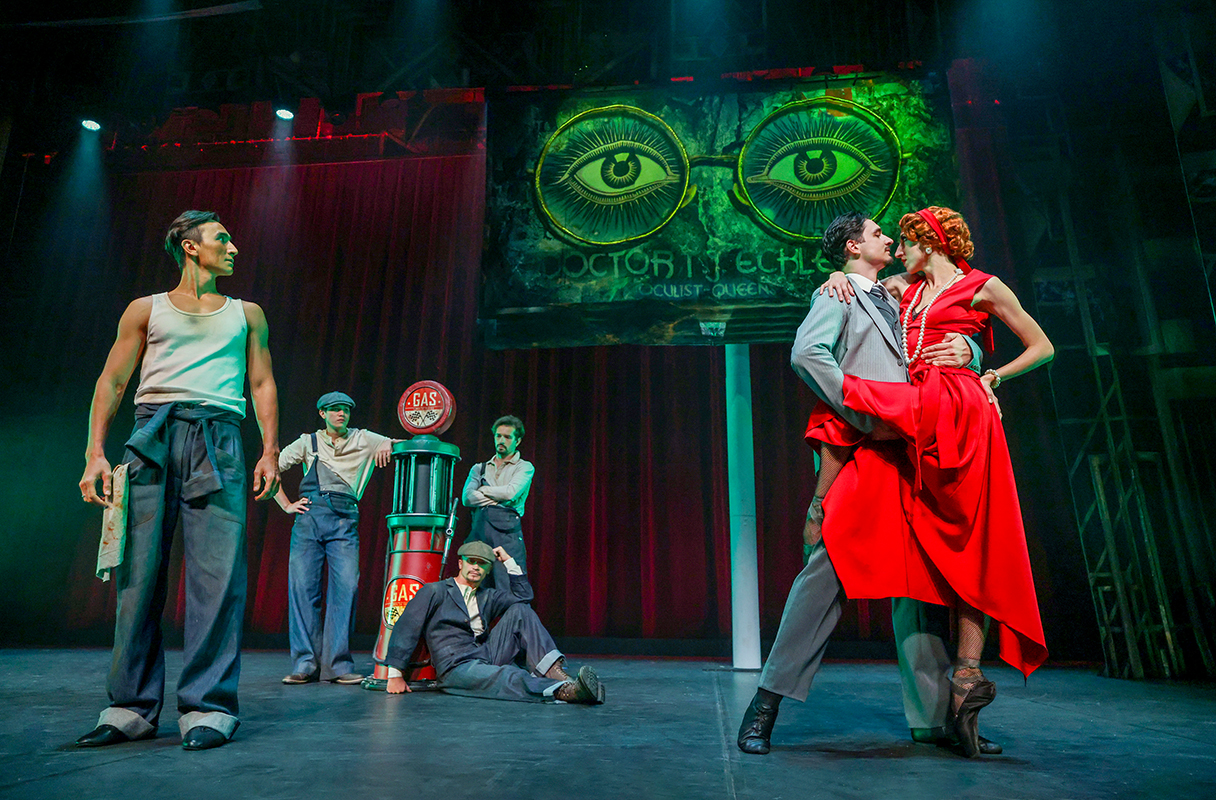
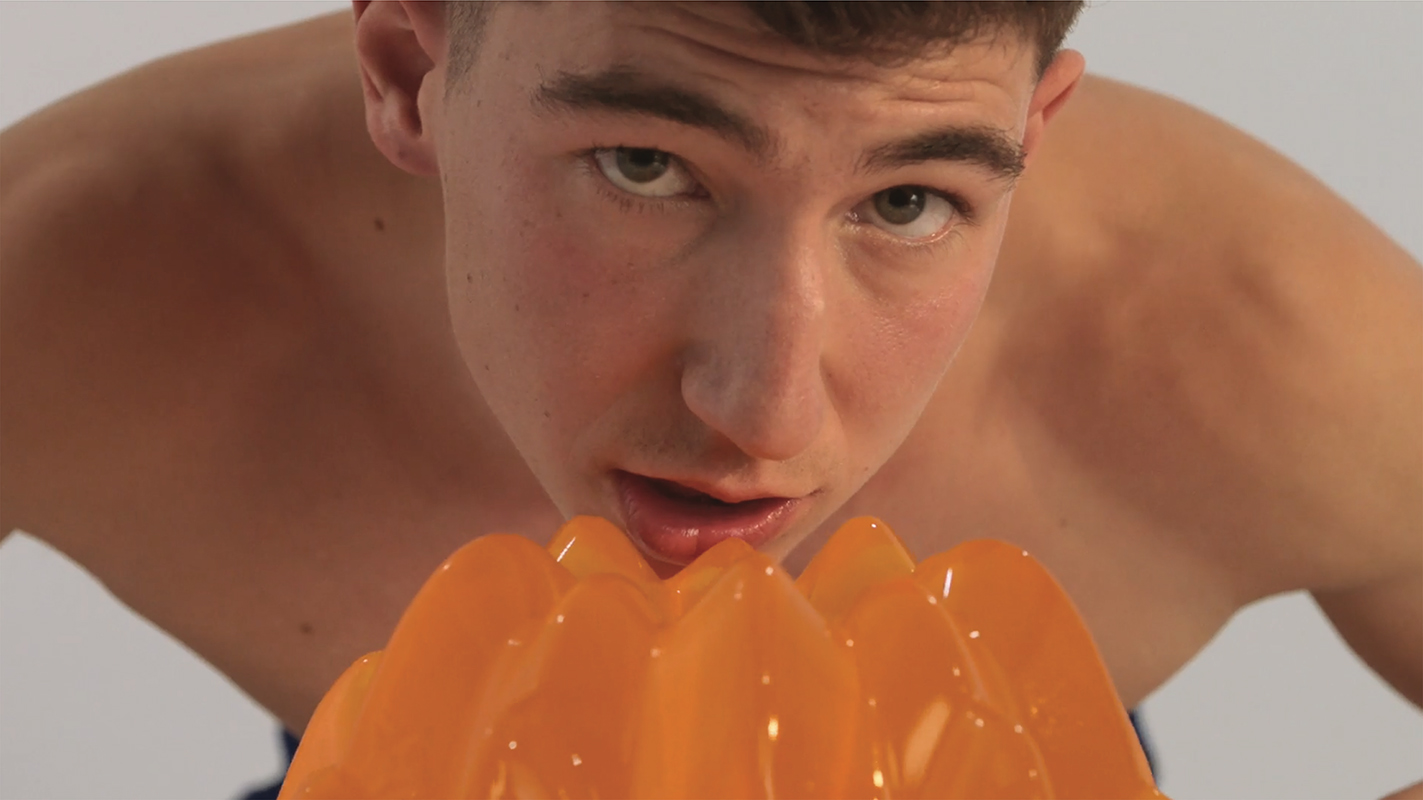













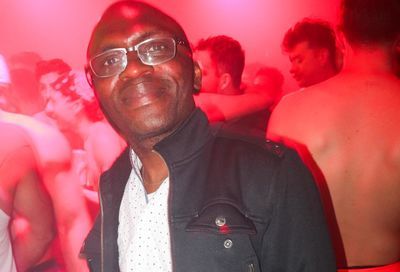
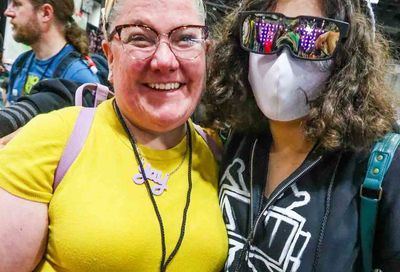
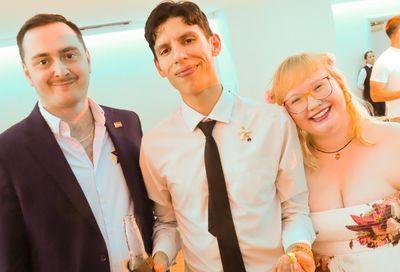
You must be logged in to post a comment.